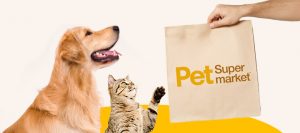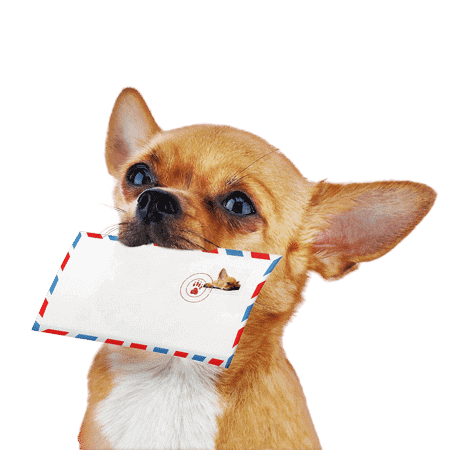The end-of-year holidays are moments that we like to spend with family and friends. Naturally, our dogs are often also party but, at this time of year, our homes are full of temptations that are not without dangers for our pets. Learn how to spot these dangers to spend serious holidays with your doggie.
Side Table The dangers of chocolate, fat and salty products and alcohol
Chocolate
This is certainly the danger n ° 1 of the end-of-year holidays for dogs. It is found as well packaged in blokes under the tree, in decoration guide, hung on the branches of the same tree or left within reach on the coffee table of the living room … it is obviously the chocolate. Dogs love its sweet taste, but it can still be very dangerous for them. The chocolate contains indeed a toxic molecule for the dog called theobromine, harmful for his nervous system and his heart. Intoxication can occur upon ingestion of 40g of dark chocolate by a 10kg dog. In all circumstances, it must therefore be taken to leave these treats out of the reach of our four-legged companions.
To read also: the poisoning of the chocolate dog
GRAS products
The fatty products will certainly be among the dishes that will occupy a place of choice on the Tables du Rebellique Butter plate to accompany oysters and fruits of seas, buttercream to garnish the Christmas log or even the inevitable liver fat. If in small quantities, all these foods are safe for the dog, they can be responsible for acute pancreatitis if the dog has swallowed large quantities. Acute pancreatitis is an inflammation of the pancreas that requires the hospitalization of the dog urgently. Caution is putting with gourmet dogs who have the unfortunate habit of flying food. Never leave an entire butter plate, foie gras block, buttercream on the kitchen plan or on the dining room table if your dog is likely to fly them …
Salty products
Christmas and New Year also often do beautiful part with salted products such as smoked salmon, cold cuts or seafood. Again, it must be ensured that these products remain out of reach because the salt they contain can be very toxic to dogs. Two to 3 grams of salt per kg of body weight of the animal can be sufficient to trigger signs of digestive and neurological poisoning, and 4g of salt/kg are fatal. Of course, it is still possible to give a little bit to your pet to please him during the holidays, but you will have only understood if it’s occasional and in a small amount.
Alcohol and Champagne plugs
The holidays are so often the opportunity to drink when we find ourselves on the aperitif or around a good meal. If moderation is for human beings, it is abstinence that is needed for our pets. Indeed, ethanol found in alcoholic beverages that flow afloat during the holidays can be responsible for serious intoxications in dogs.
Take care to rid of the glasses before leaving a room to which your dog has access so that it does not take the idea of lapping the alcohol that could stay there. Dogs are particularly attracted to sweet spirits and fruit juice cocktails such as punch. The traditional alcohol-based chicken milk could also pleas very much. CAUTION, therefore
Read also: Dog intoxication with alcohol.
Beware of the champagne plugs with which dogs like to play but who are responsible every year for many cases of intestinal occlusions … if the dog has swallowed them.
Poultry bones
Hard to resist stretching your dog who would like to enjoy the remains of the turkey or the capon. Do not give up at the temptation to give it the carcasses of this poultry because they contain bones that, once cooked and rid of the meat that surrounds them, become very friable and break-in point. If the dog has swallowed, it could be responsible for any occlusion or serious digestive perforations. Leaving to please your pet, book it rather a small piece of flesh from this delicious poultry.
Side decorations: the dangers of the fir, decorative plants and artificial snow
The Christmas tree
King of forests and adorned with a thousand fires at the holidays, the Christmas tree also has many dangers for the dog. Of course, it could first fall on your pet and hurt it. So care for its stability and avoid decorating it with treats (sandblasted, chocolates, barley sugars …) that could attract your dog in its branches.
Never leave your dog in the presence of the fir unattended, especially if your dog tends to chew all that falls to her mouth. This is particularly the case for young dogs who tend to explore the world around them with their mouths and want to play with the decorations of the tree … After all, all these small balls are like so many “Baballes” more than tempting for the dog. But, unfortunately, let your dog play with fir decorations would be dangerous to more than one title. All decorations, pieces of garland, angels’ hair are so many small elements that the dog could swallow at the risk of provoking his digestive occlusion or internal injuries. Electric garlands of the fir could also be the cause of electric burns and electrocution.
For serene holidays, preferably choose non-edible and non-breakable decorations, including glass balls and electric garlands (or failing to unplug them when you can not monitor your dog) if your dog is irreparably attracted by the tree.
Choose a non-flocked Christmas tree because artificial snow can also have some dog toxicity. Artificial snow is also toxic when used as a bomb to decorate windows, for example. It can be responsible for irritation of the mouth and vomiting.
Decorative plants
Many decorative plants offered or purchased at the end-of-year holiday moments also have the toxic potential for dogs that would enjoy it. This is particularly the case for traditional holly, mistletoe, hyacinth or poinsettia that often decorate our homes in holiday periods. Similarly, beware of Christmas crowns that often contain IF or eucalyptus leaves. Although very decorative, these two plants are also toxic for our pets. Place them in height, out of reach of your pet.
In case of intoxication, it will be necessary to call without delay your veterinarian or a veterinary poison centre so that it tells you how to follow.



